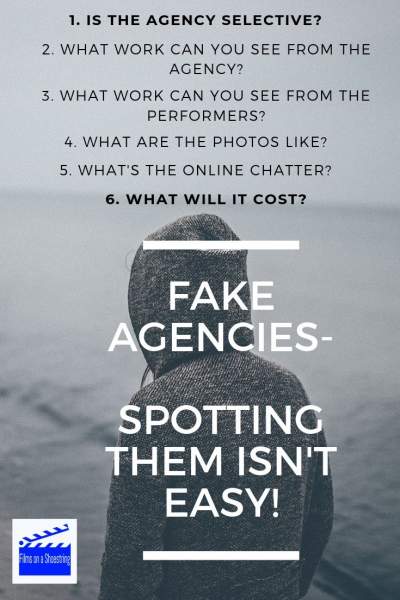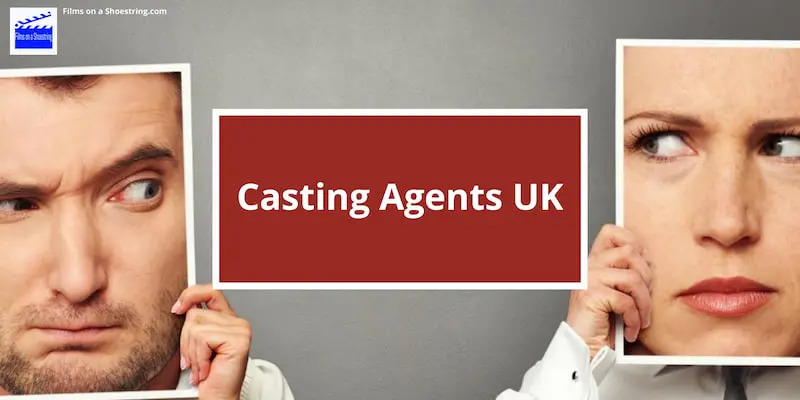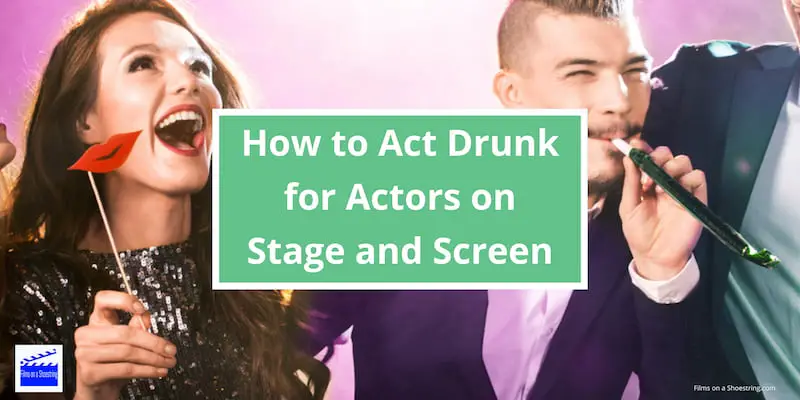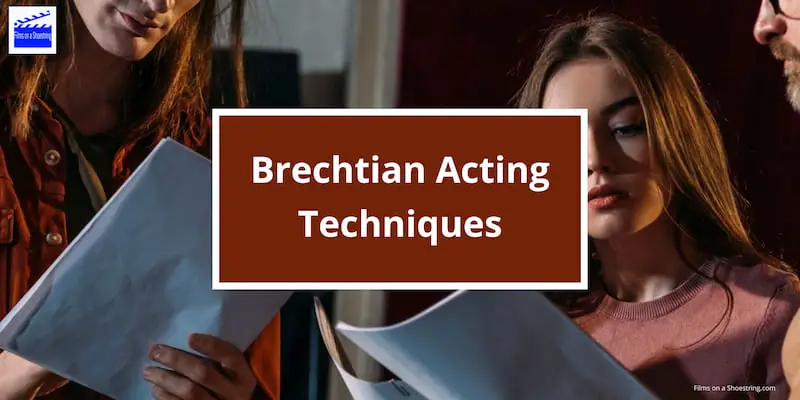Compiling our list of UK Acting Agencies was more difficult than you’d imagine because it’s so hard to tell the difference between a fake agency and a badly performing one.
Our advice is to work hard for representation at a selective agency whose clients can be individually tracked as busy, paid performers.
What is a Fake Talent Agency?
Running a talent agency sounds easy, but in reality, is hard work and difficult to do profitably. There are so many actors, extras, singers, dancers, and models looking for jobs that only a tiny percentage of submissions result in paid work. A genuine agency earns its income from the commission charged on paid work. Applicants are screened for looks, skills, training, and experience. Therefore, the agency only represents high quality and bookable performers.
A fake talent agency makes money from the performers they represent rather than from commission out of the performer’s earnings. They accept almost everyone onto their books without careful screening.
Hear a real life story of dealing with a scam talent agency from YouTube Channel Alyse – Acting Out.
How Do People Fall For Fake Agencies?
Everyone knows scam talent agencies exist, especially those aimed at models. It can be surprisingly hard to identify them though and takes some careful thought.
- The website, social media, and marketing are slick and persuasive, with big promises.
- Agency photos, showreel, workshop fees and sometimes assessment or joining fee are common across the industry even with reputable agencies, so it can be hard to spot the sales pressure.
- Talent agencies generally are bad at clearly stating their costs on their website, even the reputable ones. So the scam sites easily persuade newcomers that these unexpected costs are normal.
- All agencies represent some clients who don’t get chosen from submissions or booked for work. It can be hard to assess how much this is to do with the agency and to what extent the individual’s own looks and skills are unwanted by casting directors.
- In an industry where no one feels free to speak out in case it jeopardises their career, few people will leave an honest online review about being scammed.
Online Criticism Of Fake Agencies
But even where people are brave enough to report their problems, scam companies work hard to suppress online criticism. The threats suffered by campaigner Chris Hurst show us all that speaking up can be surprisingly dangerous.
Genuine Talent Agencies Can Be A Bad Move Too
Some talent agencies have a short life. Unless the new owners already have strong contacts in the industry, attracting performers with quickly bookable skills and experience is an uphill battle. Most new agencies will lose money at least for the first year or two.
The turning point for the agency comes when the talent starts booking work on a regular basis. Which sounds obvious, but you’ll find plenty of agencies where there’s very little evidence of anyone working.
This can happen for a number of reasons:
- The agency is still developing contacts and learning how to improve their business
- Casting directors (especially those without family commitments) expect agencies to be working or on-call (without notice) whenever they are – including evenings, late nights and weekends – and a sole trader can struggle to meet these demands
- Casting directors can blacklist an agency because too many of their low-quality performers don’t turn up for auditions or cancel at the last minute (this happens every day and infuriates everyone)
- If the agency represents a lot of inexperienced performers who don’t have the credits to get seen or the skills to get booked, the work won’t be booked
- Some agencies (especially extras agencies) don’t register with Spotlight, where the high-quality jobs are advertised
Researching Talent Agencies
Before you send off your application to an agency, do thorough research. There are key questions you need to answer.
1. Is The Agency Selective?
If an agency follows you on social media or approaches you about representation, it’s easy to feel flattered. But if you’ve had no previous contact with them, you should question their motives.
Agencies are overwhelmed by applications. They can’t take phone calls, follow up requests or even send out rejection letters because there are so many people wanting to join them. When a new agency launches, it is often accompanied by a flurry of chatter in Twitter’s acting circles.
An agency going out to recruit people is unusual. A few online checks will normally uncover a whole pattern of approaches.
It’s possible that your ethnicity or highly unusual skill is just what an agency desperately wants to have on their books. But if you don’t, or you see that there is widespread unsolicited recruitment going on, you know it’s worth questioning the motives behind your offer.
“No Experience Needed” – read that as a Big Red Flag.
2. What Work Can You See From The Agency?
Do the website’s news page and social media feed show people working? Publicity shots, film trailers and photos on set are the kind of evidence you need to see.
Depending on the agency, you might also see evidence of performers submitting self-tapes and attending castings. They heavily outnumber the booked work, because a lot of people will be auditioned and only one will get the role.
3. What Work Can You See From The Performers?
You can normally see the performers named and pictured on an agency’s roster; it’s unusual and puzzling if they aren’t there.
Most reputable agencies add the Spotlight link to the individual’s profile too. It’s well worth looking at this carefully. We found many examples of expired Spotlight membership links, multiple agencies being listed on the Spotlight CV, or even just one – different – agency listed!
If you checked the name to IMDb and Mandy.com, does the correct performer with that name appear? Was it recent work you can reasonably connect to the current agency?
If you can see an agency happily interacting with its clients on social media, you know there is a good relationship there. But check that there is a consistent pattern of clients praising the agency in an authentic way about paid work. You should also see performers’ accounts regularly mention and thank their agency when talking about their booked jobs.
Does the performer’s social media presence clearly identify the agency which represents them? Do they look like a genuine industry professional talking about the subject throughout their feed?
4. What Are The Photos Like?
This is a tricky one.
On the one hand, some agencies accept headshots taken at home even if they’re low quality. And that can make the agency look less than professional.
Conversely, getting people to pay for expensive photos can be a great way for a scam agency to make money.
Most reputable agencies will have a list of recommended photographers. You will make your own arrangements and pay the photographer directly for an agreed price.
But that’s expensive. You’ll generally pay £100-£250 for an hour’s shoot with up to two or three changes of outfit, with an agreed number of edited digital images. (If you’re starting out and don’t have professional training or credits, you should be nearer the £100 end of the market).
To make photos more affordable and to ensure a house style, some agencies arrange an agency shoot. You pay roughly £50-£65 for at least a headshot and full body shot. You may be told what to wear, and you are occasionally not in control of the final chosen image.
Unfortunately, most agencies don’t explain their headshot policy on their website. If it became the industry norm to do so, and include costs for photoshoots arranged by the agency, the scams would be obvious from their silence or outrageous prices.
The Hard Sell
The biggest problem is when people spend time and effort attending a photoshoot, and only then receive the very hard sell. If you didn’t know the costs when you walked in, ignore the sales pitch and walk out. When a really great professional photographer can do a multi-shot session for £250 or less, you know straight away that the £500 or even £1200 package is a complete rip-off. Every attempt will be made to stop you leaving the building – take note of how quickly the prices tumble the closer you get to the door! SCAM!!
5. What’s The Online Chatter?
To come across questions about agencies on forums and social media is normal. In fact, it’s a sensible precaution. But if people add the suggestion that they are asking because something unsettled them, take note.
If you see positive recommendations, do a quick check to ensure it’s from someone who is genuine and has actually received work through the agency.
Did you see negative comments or one start reviews buried somewhere? Definitely read them.
6. What Will It Cost?
It is illegal for a modelling agency to charge a joining fee.
“You can’t charge any upfront fees for finding work for photographic and fashion models. This includes putting information about the models in a publication or website.”
UK government advice to modelling agencies
The situation is different for performers not working as models. Legally, talent agencies for actors, extras, dancers, musicians, singers, and other performers cannot charge a joining fee.
However, according to the UK government, they ARE allowed to “charge upfront fees for listing the worker or performer’s details in promotional publications or on websites to help them find work” 30 days after signing a contract.
It’s a long-held mantra that you should not pay to join an agency. It still holds true for most agencies who only represent adult members of Spotlight.
But it is increasingly common to add charges for inclusion of the performer on the agency website. The better ones will, at least, offset the cost against payment for the first job.
But if you only work one day per year, you basically work for free!
Worryingly, many agencies don’t always clearly show the charges on their website. On top of photos, showreel, Spotlight membership, and travel costs, it’s another expense to bear with no certainty of work or income.
The Changes Increase Risk
Why is this happening? As with all other industries, some people at the top are making more money and the majority are earning less. As budgets get squeezed, performers receive lower rates, and agents watch their commissions fall. At the same time their working hours increase, business software has to be paid for, and more people keep applying. Ultimately, the lowest paid in the pyramid bear the greatest cost.
So a clear rule about not paying a fee has become a curious quagmire, helping to cover the existence of scams and fake agencies. All we could do in our list of hundreds of UK Acting Agencies was summarise aspects of some agencies that worried us, rather than clearly shout out SCAM!
Walk Away Now!!
It doesn’t matter if a talent agency fails to get paid work for its clients because it’s a scam, not well run or attracting the wrong performers. The effect is the same – they won’t get you into paid work. The difficulty with the scam agency is that they’ll take your money too.
Getting a good acting agency to accept you is hard, and you might think you are better off taking anything rather than nothing. But that’s not true.
Better Alternatives To Fake Agencies
You can get unpaid experience on student films and microbudget projects, via the Facebook groups for film networks. If you have some money to do so, apply for roles on Starnow, Mandy and Casting Networks. Approach casting directors yourself, being careful to check that your emails are well structured, quick to read, and don’t contain large data photos which crash the CD’s inbox. Keep training, through drama school, youth theatre, the prestigious National Youth Theatre, or local workshops and theatre groups.
As you get a better CV and show you are bookable, start approaching reputable agencies again. Once you have four professional credits you can join Spotlight even without an agent.

Victims Of Fake Agencies
Remember, when it comes to scam or fake agencies, spotting them is not easy.
If you have been a victim of a fake agency, please be brave enough to leave an online review on a reputable review site. Your action will help many, many others avoid the scam. The more people speak up, the harder it is for fake agencies to hide their real business aims.






